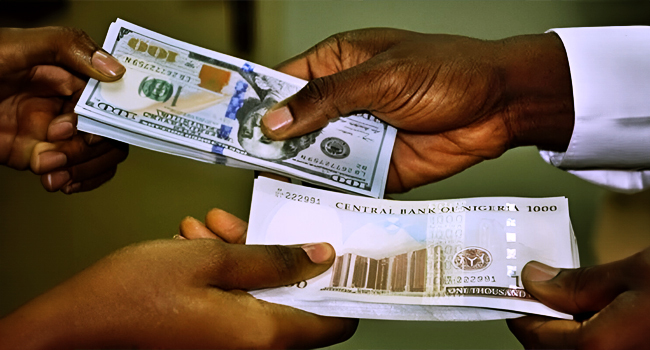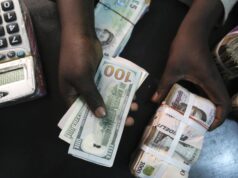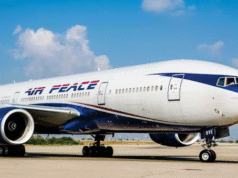The naira continued to struggle at the official foreign exchange market last week, depreciating by 1.25 percent to close at 1536.89/$ on Friday.
Data from the Central Bank of Nigeria (CBN) showed that the currency opened the week at 1,528.03/$, weakening further from the previous session’s 1,517.93/$.
It briefly regained some strength midweek but eventually slid to 1536.89/$ by the end of trading on Friday.
The depreciation comes as negotiations over the naira-for-crude agreement between the Nigerian National Petroleum Corporation Limited (NNPCL) and local refineries reportedly stalled.
Talks are expected to resume this week to resolve the deadlock, with discussions on extending the agreement still on the table.
Meanwhile, the Dangote Petroleum Refinery has temporarily halted the sale of petroleum products in naira, citing foreign exchange constraints.
Industry experts warn that this move could further strain the FX market, as importers will need to secure large amounts of US dollars to buy petroleum products.
Despite ongoing efforts by the CBN to improve FX supply to banks and Bureaux De Change, the naira has remained under pressure.
Analysts warn that while these interventions may offer short-term relief, Nigeria’s foreign exchange challenges require deeper structural reforms.
“Looking ahead, we anticipate a mixed outlook for the naira as demand pressures for the greenback intensify, with FX users and speculators continuing to exploit arbitrage opportunities. Nevertheless, we expect the CBN to sustain its weekly interventions to stabilise the local currency,” experts at Cowry Assets Management Limited stated.
In the parallel market, the naira gained N12 against the dollar, appreciating by 0.77 percent week-on-week to close at an average of N1,568 per dollar.
Afrinvest reported that the currency settled at 1565/$ in the informal market and projected a stable outlook supported by continued CBN interventions.
Meanwhile, Nigeria’s foreign reserves dipped by 0.06 percent from $38.37 billion to $38.35 billion as of Thursday.
Analysts at Cowry Assets Management attributed the decline to the CBN’s efforts to defend the naira amid limited FX inflows.
Foreign portfolio investors’ participation in Nigeria’s FX market remains low, partly due to concerns over fluctuating oil revenues.
As a major oil-producing nation, Nigeria is particularly vulnerable to external shocks, including geopolitical tensions that affect crude supply and pricing.
Last week, Brent crude prices rose by 3.0 percent to around $85 per barrel, driven by fresh US sanctions against Iran and OPEC+ reaffirming production cuts until June 2026.
Given Nigeria’s dependence on oil exports to sustain FX reserves, these global developments could directly impact forex inflows and the naira’s stability in the coming weeks.

















